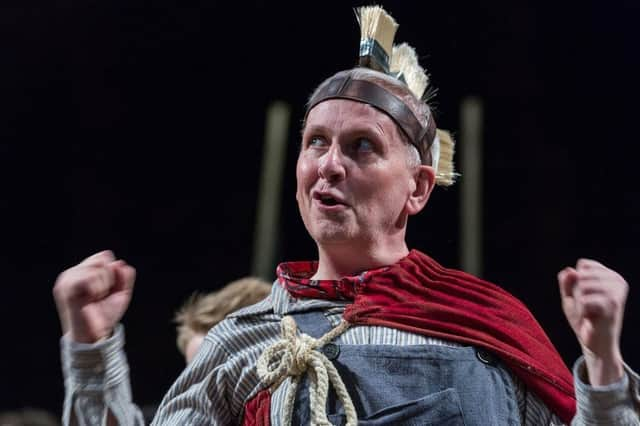Discover the surprising past of amateur theatre and its national role


Tracing the history of amateur theatre in the UK is not as straightforward as it may seem.
Whereas its professional counterpart has a well-documented past, amateur theatre has often been neglected.
Advertisement
Hide AdAdvertisement
Hide AdThe 2016 report Reflecting on Amateur Theatre Research, written by experts at the University of Warwick, the University of Exeter and Royal Holloway University, states: “In its range and scope it’s clear that amateur theatre is a vital part of the nation’s cultural heritage but, rather than being seen and valued as part of a wider social history of creative cultural practice, it has traditionally flown under the radar of national archives and museums.”
Nevertheless, there are some clues as to how it has developed.
The oldest independent amateur dramatic society in the country - in fact, the world - is believed to be Manchester Athenaeum Dramatic Society. The group started in 1847 and, until this year, had continued performing, apart from during the two world wars. It was based at the Manchester Athenæum Institute, a gentlemen’s club dedicated to the pursuit of knowledge. In its earliest days, members would simply read plays to audiences, but over time they began to be acted. The first woman was employed in 1862.
The growth of amateur theatre in the late 19th century coincided with the rise of Gilbert and Sullivan. With their drama, humour and melodies, their Savoy Operas were very popular and amateurs enjoyed performing them - often using G&S to launch themselves.
Advertisement
Hide AdAdvertisement
Hide AdThe first amateur production of a Savoy Opera in Britain took place in April 1879 at the Drill Hall in Kingston-upon-Thames, when The Harmonists performed HMS Pinafore.
It was soon realised that amateur groups would benefit from an overarching association and a meeting of interested parties was held at the Grosvenor Hotel, Manchester, in February 1899. Representatives from 11 societies attended.
It fell to Nicholas Kilvert, musical director of Brooklands Amateur Thespian Society, to propose the formation of the organisation now known as the National Operatic and Dramatic Association.
In the 20th century, amateur theatre expanded further and played ever more vital roles. Performances aided convalescence at Wrest Park Hospital in Bedfordshire during the First World War, while a theatre was created by troops in a converted Victorian gun emplacement on Hurst Castle in the Solent during the Second World War.
Advertisement
Hide AdAdvertisement
Hide AdGroups became chroniclers of local history, too, one example being Market Harborough Drama Society, which staged Richard III on Bosworth Field in 1985 to mark the 500th anniversary of the battle.
Amateur theatre has since flourished in all parts of the UK. It is a fixture of the majority of our towns and cities, often performing to remarkably high standards.
In a 2016 production of A Midsummer Night’s Dream, the RSC enlisted the support of amateur groups to play the Mechanicals, one of the oldest and most loved depictions of amateur performers. Various critics believed them to be the best thing about the show.
* This article is part of The Show Must Go On, JPIMedia's campaign to support live arts venues